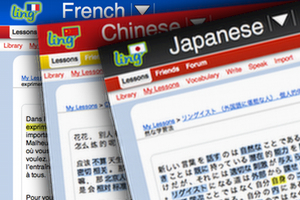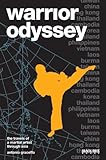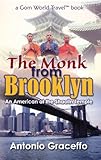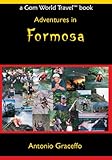 The Polyglot Project is a new online reading tool with pop-up translations when you double click on words. The site is still in its infancy, but holds a lot of promise if they continue to expand their library and languages as their website promises.
The Polyglot Project is a new online reading tool with pop-up translations when you double click on words. The site is still in its infancy, but holds a lot of promise if they continue to expand their library and languages as their website promises.
As always, here are the pros and cons of the site as I see them:
The Good
It’s free & easy to sign up: As it stands, the site is completely free and it only requires you to fill in an email, password and your native language. That’s it.
Intuitive, easy to use design: Once you’re logged in, you just pick a book from the library, and begin reading. To look up a word, simply double-click on it and the translation in your native tongue will pop-up briefly.
Navigation shortcuts: Instead of clicking the next or back arrows, you cut just press the “n” or “p” keys for “next” and “previous” respectively.
Simple pop-ups: Many dictionary pop-up systems show too much information, which not only slows down the interface, but also slows down you the learner. There is no chance to get lost or distracted as The Polyglot Project only flashes a single word translation for a short time.
System memory: The system automatically adds any books or languages you’ve browsed to your account dashboard so you can quickly jump back to what you were previously reading. You can of course delete books or languages you no longer wish to view.
The Bad
Limited titles: So far, there are only a few titles available on the site, and they are all literary classics. I like the classics just as much as anyone, but they probably aren’t the best choice for someone just starting out in a language. For starters, they tend to use archaic vocabulary and structures no longer used in the modern language (which is of little use for someone trying to communicate with native speakers. I much prefer getting a firm handle on the modern language before delving into the classics. I hope they will soon add some modern fiction and non-fiction to the mix.
Limited languages: So far, the site only offers four Indo-European languages: German, Spanish, Italian and French. As an Asiaphile, I would greatly like to see Chinese, Japanese, and Korean join the list, as well as other top-ten, must-learn languages like Arabic. I understand, however, that each of these languages poses serious technical challenges: since they don’t naturally include spacing between words, it makes it hard for pop-up dictionaries to parse between different terms.
No way to save vocabulary: In its current design, there is no way to save and then later review words you have looked up. This is my favorite part of using sites like LingQ and I have come to expect it in foreign language reading sites.
Reading only: Reading is a wonderful tool for improving your vocabulary and writing skills, but it should take a back seat to (or at least be supplemented by an equal portion of) listening. This is especially true when you just start out in a foreign language. Many language learners spend far too much time reading and not enough time listening, leading to big vocabularies and strong reading and writing skills, but often causing poor listening skills and strange pronunciation patterns (i.e. they say words how they think they are pronounced based on reading, not how native speakers actually pronounce them).
The Verdict
The Polyglot Project is definitely worth checking out, and acts as a good supplement to your other foreign language learning activities. If they are able to expand their library with modern books and additional languages, they will have created a very powerful language tool, and will likely attract a strong following.
]]> Antonio speaks numerous languages (French, German, Italian, Khmer, Mandarin Chinese, Spanish and Thai), and has used his language skills to good ends. He has devoted the past 10 years of his life to chronicling martial arts masters around the world in his web TV show Martial Arts Odyssey and has worked tirelessly to fight the atrocities being waged against ethnic minorities in Burma.
Antonio speaks numerous languages (French, German, Italian, Khmer, Mandarin Chinese, Spanish and Thai), and has used his language skills to good ends. He has devoted the past 10 years of his life to chronicling martial arts masters around the world in his web TV show Martial Arts Odyssey and has worked tirelessly to fight the atrocities being waged against ethnic minorities in Burma.
On top of all this, Antonio has written an impressive trail of books, including The Monk from Brooklyn: An American at the Shaolin Temple, Adventures in Formosa, Rediscovering the Khmers, Boats, Bikes, and Boxing Gloves: Adventure Writer in the Kingdom of Siam, The Desert of Death on Three Wheels, and his latest book, Warrior Odyssey: The Travels of a Martial Artist in Asia.
The Interview:
In this exclusive interview with Antonio Graceffo, he “pulls no punches” (pun intended) when sharing his views on how to learn foreign languages and martial arts effectively. His wisdom stems from years spent living abroad coupled with sound theory.
To learn more about Antonio, visit his site SpeakingAdventure.com.
]]> LingQ is an extremely useful and efficient language learning system created by Steve Kaufmann. The site has both free and premium paid content, and currently boasts tools for 10 languages: Chinese, English, French, German, Italian, Japanese, Portuguese, Russian, Spanish, and Swedish (which also happen to be the languages Steve speaks.) Korean is coming soon…
LingQ is an extremely useful and efficient language learning system created by Steve Kaufmann. The site has both free and premium paid content, and currently boasts tools for 10 languages: Chinese, English, French, German, Italian, Japanese, Portuguese, Russian, Spanish, and Swedish (which also happen to be the languages Steve speaks.) Korean is coming soon…
The beauty of LingQ is that when you save vocabulary items using the “LingQ” button, these words will appear highlighted in yellow in all future texts you study. You have the choice of adding your own hint for each word or copying/pasting from the integrated multilingual dictionaries.
There are heaps of lessons covering the entire spectrum of abilities and interests, and you can even import your own audio or text content. For example, I recently imported an e-mail I received in Chinese and then had a Taiwanese friend record the audio. Voila; instant content that is interesting, relevant and perfectly tailored to my learning needs. And of course, vocabulary within your uploaded content can be “LingQed” as discussed above!
Take Action
- Set up a free account at LingQ.
- Choose some lessons in the language or languages you are interested in.
- Read and listen to each lesson multiple times adding LingQs to unfamiliar vocabulary
- Download the audio to your iPod from the site (right click on “download”) or via podcast (you can subscribe to the various LingQ podcasts in iTunes here.)
- Upload your own materials and add LingQs.
- Sign up for a tutor once you are ready to begin speaking.





